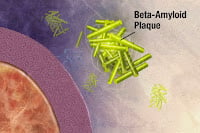Elderly patients who receive anesthesia are no more likely to develop long-term dementia or Alzheimer’s disease than other seniors, according to research by the Mayo Clinic.
The study analyzed thousands of patients using the Rochester Epidemiology Project — which allows researchers access to medical records of nearly all residents of Olmsted County, Minn. — and found that receiving general anesthesia for procedures after age 45 is not a risk factor for developing dementia. The findings were published Wednesday, May 1, online in Mayo Clinic Proceedings.
Researchers know that some elderly patients have problems with cognitive function for weeks, sometimes months, following surgical procedures, says senior author David Warner, M.D., a pediatric anesthesiologist at the Mayo Clinic Children’s Center.
There has been concern that exposure to anesthesia may be associated with long-term cognitive changes including dementia, he says. The concern stems in part from a series of studies in which animals were exposed to anesthesia and lesions similar to those observed in Alzheimer’s disease appeared in the brain — including accumulation of amyloid, a protein associated with Alzheimer’s disease.
“It’s reassuring we’re adding to the body of knowledge that there is not an association of anesthesia and surgery with Alzheimer’s,” Dr. Warner says. “There are a lot of things to worry about when an elderly person has surgery, but it seems that developing Alzheimer’s isn’t one of them.”











